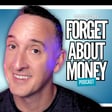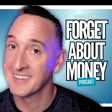
📚 Paul Merriman: 12 One-Million Dollar Ideas for Investing Success! 🏆
Watch and Subscribe on YouTube
💡 Paul Merriman shares his 12 One-Million Dollar Ideas for achieving financial success, offering practical strategies to help you transform your investment approach. 📈
Paul Merriman highlights the importance of starting early, using low-cost index funds, and diversifying your portfolio, especially by including small-cap value stocks. He breaks down how simple financial decisions made today can lead to significant long-term growth. Paul’s advice will help you steer your financial future in the right direction.
In this episode, we discuss:
1️⃣ Save Early vs. Waiting to Get Started: Discover why saving early, even small amounts, creates massive financial growth through compound interest.
2️⃣ Stocks vs. Bonds: Learn how to balance risk and reward with the right mix of stocks and bonds as part of your asset allocation strategy.
3️⃣ DIY vs. Professional Management: Explore why index funds often outperform actively managed funds, making them a smarter, low-cost choice.
4️⃣ The Power of Diversification: Understand why spreading your investments across small-cap value, large-cap value, and blend stocks strengthens your portfolio.
5️⃣ Market Timing vs. Buy and Hold: Find out why sticking with a buy-and-hold strategy beats trying to time the market.
🔗 Paul Merriman's Links:
🌐 Merriman Financial Education Foundation
📊 Quilt Charts (Referenced in the Episode):
📺 YouTube Video Explaining the Two Charts
Graph 1: 4 US Asset Class Indexes & 4 Fund Combo Relative Return Ranking (1928-2023)
Graph 2: Asset Classes & 4 Fund Combo (1928-2023) - Return Rank Frequency
🔗 David's Links:
🥊 Paul Merriman and JL Collins Debate Wealth Strategies
🍏 Forget About Money on Apple Podcasts
🎧 Forget About Money on Spotify
📜 Paul Merriman Quotes:
💡 "The system is designed to make you spend, not save. You have to arm-wrestle it to build wealth." — Paul Merriman
🛡️ "Diversification is your greatest defense. Don't put all your eggs in one basket." — Paul Merriman
🧠 "Most people will never beat the market. If you can match the market, you’ll likely be in the top 10% of all investors." — Paul Merriman
#financialfreedom #retirementplanning #IndexFunds
🎧 Listen & Subscribe: Don't forget to subscribe to "Forget About Money" for more valuable episodes featuring experts like Paul Merriman. Hit the bell icon 🔔 to stay updated with new insights on building wealth and financial independence!
Disclaimer: The discussion in this episode is for general educational and entertainment purposes only and should not be considered tax, legal, or investment advice specific to any individual.

